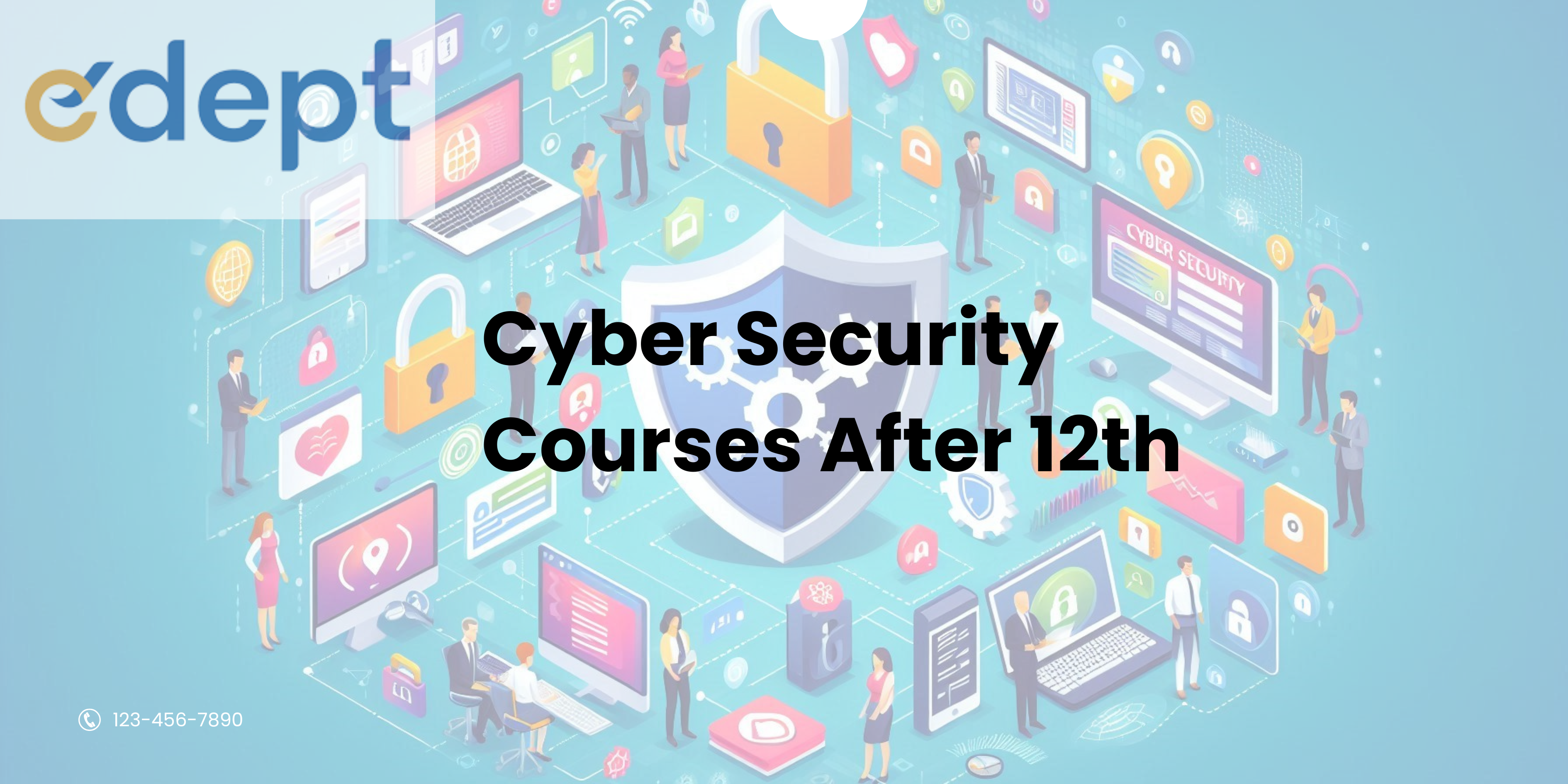How are tech-savvy youth in some countries getting lured into cybercrime rings?
The luring of tech-savvy youth into cybercrime rings is a growing concern globally, including in places like Taiwan, which has a highly digitally literate youth population. These rings exploit a combination of psychological, social, and economic factors, leveraging the very digital environments these youth are comfortable in.
Here's a breakdown of how they're being lured:
1. The Appeal of "Easy Money" and Financial Gain:
Promise of Quick Riches: This is by far the biggest draw. Cybercrime rings advertise the potential for making large sums of money quickly, with minimal effort compared to traditional jobs. This is especially attractive in regions with limited legitimate economic opportunities, high youth unemployment, or where there's a strong desire for rapid wealth.
Piecework / Percentage-Based Pay: Many cybercrime jobs, particularly for lower-tier roles like "money mules" or phishing email distributors, offer payment based on the volume of work or a percentage of the stolen funds. This can make it seem like a direct, immediate reward for their efforts.
Lack of Perceived Risk (Initially): Young individuals, often with an "optimism bias," may not fully grasp the severe legal consequences or believe they are invulnerable to harm or capture. The digital nature of the crime can make it feel less "real" than a physical crime.
2. Exploiting Technical Skills and Curiosity:
Gamification and Challenge: For many tech-savvy youth, an initial interest in hacking might stem from curiosity, a desire to understand how systems work, or a love for solving complex puzzles (like a game). Cybercrime rings often frame tasks as challenges or opportunities to "prove their skills" within underground communities.
"Ethical Hacking" Gray Area: Some youth initially explore the world of hacking through legitimate avenues like "ethical hacking" or "bug bounty programs." However, without proper guidance and mentorship, the line between ethical exploration and illegal activity can become blurred, especially when presented with illicit opportunities for quick cash.
Access to Tools and Knowledge: The internet provides readily available (and often cheap or free) tools, tutorials, and communities where individuals can learn hacking techniques. This lowers the barrier to entry for cybercrime.
3. Online Communities and Social Influence:
Dark Web Forums and Encrypted Chats: Cybercrime rings actively recruit on underground forums on the dark web, as well as on encrypted messaging platforms like Telegram, Discord, and Snapchat. These platforms offer anonymity and a sense of belonging.
Peer Recognition and Status: Within these online communities, successful hackers or fraudsters gain respect and status. This desire for peer recognition, notoriety, or a sense of accomplishment can be a powerful motivator, especially for socially isolated youth who may find validation online.
Mentorship (Malicious): More experienced cybercriminals may act as "mentors," guiding younger recruits through their first illicit activities, offering technical advice, and reinforcing the perceived benefits while downplaying the risks.
Normalization of Deviance: Being immersed in communities where illegal activities are openly discussed and glorified can normalize such behavior, making it easier for youth to cross ethical and legal lines without fully understanding the gravity of their actions.
4. Direct Recruitment Tactics:
Fake Job Advertisements: Cybercrime rings post "job" ads on the dark web or even seemingly legitimate platforms, often for roles like "developers," "pentesters," "designers" (for fake websites/phishing lures), or "money mules." The pay might be attractive, and the "job description" might initially hide the illicit nature of the work.
Test Assignments: Recruiters often use multi-stage "test assignments" – sometimes paid – to vet potential recruits' technical skills. These can range from basic tasks to actual work on illicit projects, effectively drawing the youth into the criminal activity.
Social Engineering and Grooming: Similar to romance scams, recruiters might build rapport with youth over time, grooming them by appealing to their vulnerabilities, desires, or frustrations, before introducing them to criminal activities.
Coercion and Threats: In some cases, initial voluntary involvement can escalate to coercion. If a youth becomes entangled, they may be threatened with exposure, violence, or harm to their families if they try to leave the ring. This is particularly common in large-scale human trafficking/cybercrime syndicates operating out of certain regions.
5. Lack of Awareness of Consequences:
Underestimation of Risks: Many young people simply don't understand the severe legal repercussions (fines, imprisonment, criminal record impacting future employment/travel) of cybercrime, or they believe law enforcement cannot catch them due to the internet's anonymity.
Blurred Lines: They may not differentiate between "harmless fun" (e.g., pranking a website) and serious felony crimes like data theft or financial fraud.
To counter this, many countries, including Taiwan, are focusing on early intervention, cybersecurity education in schools, providing positive pathways for tech talent (e.g., ethical hacking competitions, cybersecurity career programs), and enhancing law enforcement capabilities to swiftly identify and prosecute cybercriminals, making the risks more apparent.
The luring of tech-savvy youth into cybercrime rings is a growing concern globally, including in places like Taiwan, which has a highly digitally literate youth population. These rings exploit a combination of psychological, social, and economic factors, leveraging the very digital environments these youth are comfortable in.
Here's a breakdown of how they're being lured:
1. The Appeal of "Easy Money" and Financial Gain:
Promise of Quick Riches: This is by far the biggest draw. Cybercrime rings advertise the potential for making large sums of money quickly, with minimal effort compared to traditional jobs. This is especially attractive in regions with limited legitimate economic opportunities, high youth unemployment, or where there's a strong desire for rapid wealth.
Piecework / Percentage-Based Pay: Many cybercrime jobs, particularly for lower-tier roles like "money mules" or phishing email distributors, offer payment based on the volume of work or a percentage of the stolen funds. This can make it seem like a direct, immediate reward for their efforts.
Lack of Perceived Risk (Initially): Young individuals, often with an "optimism bias," may not fully grasp the severe legal consequences or believe they are invulnerable to harm or capture. The digital nature of the crime can make it feel less "real" than a physical crime.
2. Exploiting Technical Skills and Curiosity:
Gamification and Challenge: For many tech-savvy youth, an initial interest in hacking might stem from curiosity, a desire to understand how systems work, or a love for solving complex puzzles (like a game). Cybercrime rings often frame tasks as challenges or opportunities to "prove their skills" within underground communities.
"Ethical Hacking" Gray Area: Some youth initially explore the world of hacking through legitimate avenues like "ethical hacking" or "bug bounty programs." However, without proper guidance and mentorship, the line between ethical exploration and illegal activity can become blurred, especially when presented with illicit opportunities for quick cash.
Access to Tools and Knowledge: The internet provides readily available (and often cheap or free) tools, tutorials, and communities where individuals can learn hacking techniques. This lowers the barrier to entry for cybercrime.
3. Online Communities and Social Influence:
Dark Web Forums and Encrypted Chats: Cybercrime rings actively recruit on underground forums on the dark web, as well as on encrypted messaging platforms like Telegram, Discord, and Snapchat. These platforms offer anonymity and a sense of belonging.
Peer Recognition and Status: Within these online communities, successful hackers or fraudsters gain respect and status. This desire for peer recognition, notoriety, or a sense of accomplishment can be a powerful motivator, especially for socially isolated youth who may find validation online.
Mentorship (Malicious): More experienced cybercriminals may act as "mentors," guiding younger recruits through their first illicit activities, offering technical advice, and reinforcing the perceived benefits while downplaying the risks.
Normalization of Deviance: Being immersed in communities where illegal activities are openly discussed and glorified can normalize such behavior, making it easier for youth to cross ethical and legal lines without fully understanding the gravity of their actions.
4. Direct Recruitment Tactics:
Fake Job Advertisements: Cybercrime rings post "job" ads on the dark web or even seemingly legitimate platforms, often for roles like "developers," "pentesters," "designers" (for fake websites/phishing lures), or "money mules." The pay might be attractive, and the "job description" might initially hide the illicit nature of the work.
Test Assignments: Recruiters often use multi-stage "test assignments" – sometimes paid – to vet potential recruits' technical skills. These can range from basic tasks to actual work on illicit projects, effectively drawing the youth into the criminal activity.
Social Engineering and Grooming: Similar to romance scams, recruiters might build rapport with youth over time, grooming them by appealing to their vulnerabilities, desires, or frustrations, before introducing them to criminal activities.
Coercion and Threats: In some cases, initial voluntary involvement can escalate to coercion. If a youth becomes entangled, they may be threatened with exposure, violence, or harm to their families if they try to leave the ring. This is particularly common in large-scale human trafficking/cybercrime syndicates operating out of certain regions.
5. Lack of Awareness of Consequences:
Underestimation of Risks: Many young people simply don't understand the severe legal repercussions (fines, imprisonment, criminal record impacting future employment/travel) of cybercrime, or they believe law enforcement cannot catch them due to the internet's anonymity.
Blurred Lines: They may not differentiate between "harmless fun" (e.g., pranking a website) and serious felony crimes like data theft or financial fraud.
To counter this, many countries, including Taiwan, are focusing on early intervention, cybersecurity education in schools, providing positive pathways for tech talent (e.g., ethical hacking competitions, cybersecurity career programs), and enhancing law enforcement capabilities to swiftly identify and prosecute cybercriminals, making the risks more apparent.
How are tech-savvy youth in some countries getting lured into cybercrime rings?
The luring of tech-savvy youth into cybercrime rings is a growing concern globally, including in places like Taiwan, which has a highly digitally literate youth population. These rings exploit a combination of psychological, social, and economic factors, leveraging the very digital environments these youth are comfortable in.
Here's a breakdown of how they're being lured:
1. The Appeal of "Easy Money" and Financial Gain:
Promise of Quick Riches: This is by far the biggest draw. Cybercrime rings advertise the potential for making large sums of money quickly, with minimal effort compared to traditional jobs. This is especially attractive in regions with limited legitimate economic opportunities, high youth unemployment, or where there's a strong desire for rapid wealth.
Piecework / Percentage-Based Pay: Many cybercrime jobs, particularly for lower-tier roles like "money mules" or phishing email distributors, offer payment based on the volume of work or a percentage of the stolen funds. This can make it seem like a direct, immediate reward for their efforts.
Lack of Perceived Risk (Initially): Young individuals, often with an "optimism bias," may not fully grasp the severe legal consequences or believe they are invulnerable to harm or capture. The digital nature of the crime can make it feel less "real" than a physical crime.
2. Exploiting Technical Skills and Curiosity:
Gamification and Challenge: For many tech-savvy youth, an initial interest in hacking might stem from curiosity, a desire to understand how systems work, or a love for solving complex puzzles (like a game). Cybercrime rings often frame tasks as challenges or opportunities to "prove their skills" within underground communities.
"Ethical Hacking" Gray Area: Some youth initially explore the world of hacking through legitimate avenues like "ethical hacking" or "bug bounty programs." However, without proper guidance and mentorship, the line between ethical exploration and illegal activity can become blurred, especially when presented with illicit opportunities for quick cash.
Access to Tools and Knowledge: The internet provides readily available (and often cheap or free) tools, tutorials, and communities where individuals can learn hacking techniques. This lowers the barrier to entry for cybercrime.
3. Online Communities and Social Influence:
Dark Web Forums and Encrypted Chats: Cybercrime rings actively recruit on underground forums on the dark web, as well as on encrypted messaging platforms like Telegram, Discord, and Snapchat. These platforms offer anonymity and a sense of belonging.
Peer Recognition and Status: Within these online communities, successful hackers or fraudsters gain respect and status. This desire for peer recognition, notoriety, or a sense of accomplishment can be a powerful motivator, especially for socially isolated youth who may find validation online.
Mentorship (Malicious): More experienced cybercriminals may act as "mentors," guiding younger recruits through their first illicit activities, offering technical advice, and reinforcing the perceived benefits while downplaying the risks.
Normalization of Deviance: Being immersed in communities where illegal activities are openly discussed and glorified can normalize such behavior, making it easier for youth to cross ethical and legal lines without fully understanding the gravity of their actions.
4. Direct Recruitment Tactics:
Fake Job Advertisements: Cybercrime rings post "job" ads on the dark web or even seemingly legitimate platforms, often for roles like "developers," "pentesters," "designers" (for fake websites/phishing lures), or "money mules." The pay might be attractive, and the "job description" might initially hide the illicit nature of the work.
Test Assignments: Recruiters often use multi-stage "test assignments" – sometimes paid – to vet potential recruits' technical skills. These can range from basic tasks to actual work on illicit projects, effectively drawing the youth into the criminal activity.
Social Engineering and Grooming: Similar to romance scams, recruiters might build rapport with youth over time, grooming them by appealing to their vulnerabilities, desires, or frustrations, before introducing them to criminal activities.
Coercion and Threats: In some cases, initial voluntary involvement can escalate to coercion. If a youth becomes entangled, they may be threatened with exposure, violence, or harm to their families if they try to leave the ring. This is particularly common in large-scale human trafficking/cybercrime syndicates operating out of certain regions.
5. Lack of Awareness of Consequences:
Underestimation of Risks: Many young people simply don't understand the severe legal repercussions (fines, imprisonment, criminal record impacting future employment/travel) of cybercrime, or they believe law enforcement cannot catch them due to the internet's anonymity.
Blurred Lines: They may not differentiate between "harmless fun" (e.g., pranking a website) and serious felony crimes like data theft or financial fraud.
To counter this, many countries, including Taiwan, are focusing on early intervention, cybersecurity education in schools, providing positive pathways for tech talent (e.g., ethical hacking competitions, cybersecurity career programs), and enhancing law enforcement capabilities to swiftly identify and prosecute cybercriminals, making the risks more apparent.
0 Commenti
0 condivisioni
3K Views
0 Anteprima






